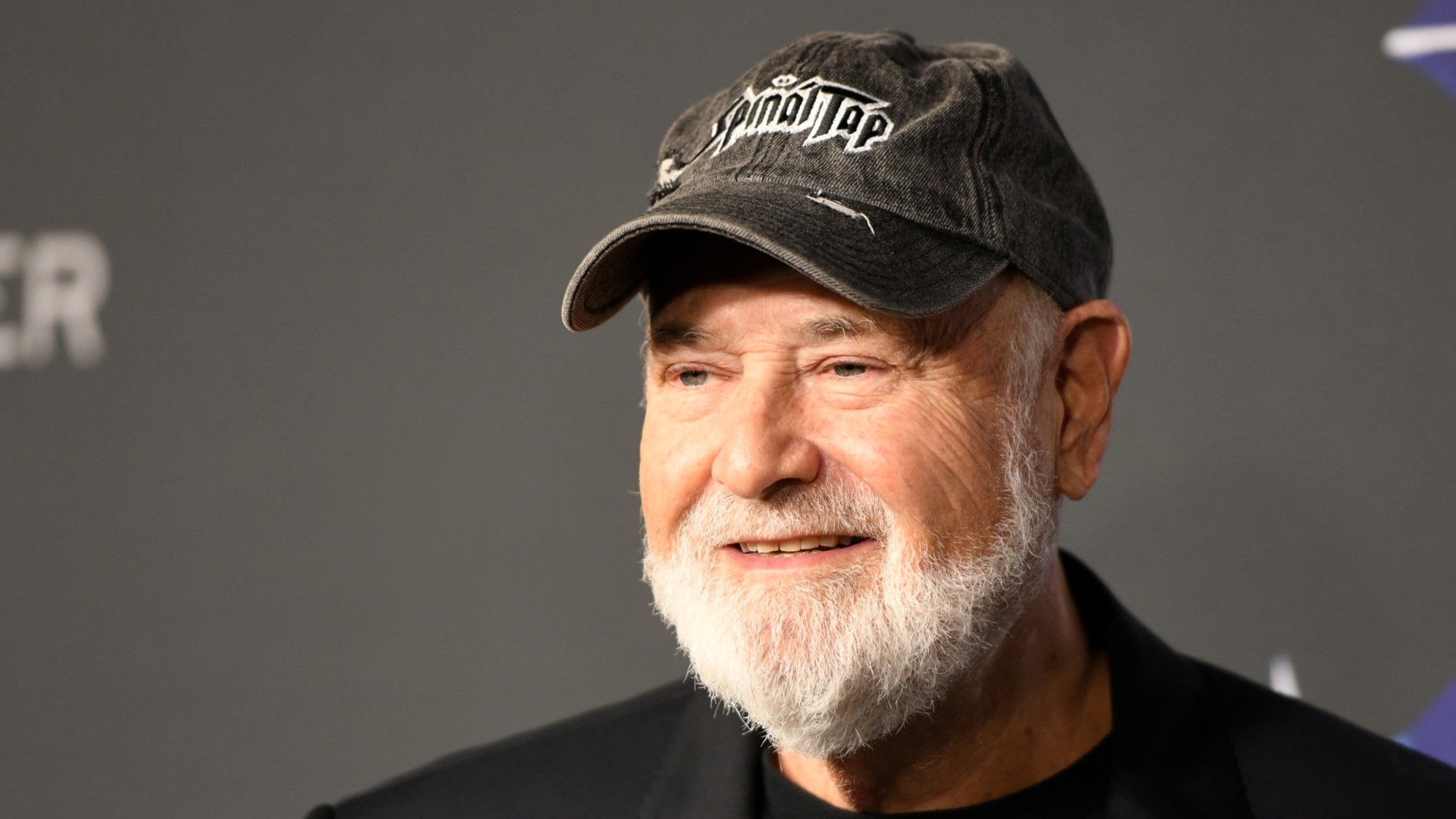Should parents be charged when their kids kill?
When a minor commits an act of violence like a school shooting, what sort of criminal liability do their parents have?


A free daily email with the biggest news stories of the day – and the best features from TheWeek.com
You are now subscribed
Your newsletter sign-up was successful
To be a parent is, in any number of ways, to accept responsibility for the growth, well-being and actions of the child in your charge. Parents found negligent in that respect can face any number of consequences: fines, community service, legally-mandated adult education courses and — in some extreme cases — the loss of custody entirely. It's a structure predicated on the notion that parents are obligated to ensure their children are meeting a basic standard of care, and any failure thereof is fundamentally harmful to the child themself.
But what happens when that paradigm shifts, and a parent is called to task not for any alleged failures toward their own child, but for their child's actions against someone else?
Last week, 54-year-old Colin Gray was arrested and charged with multiple counts of second-degree murder after his son Colt, 14, allegedly shot and killed four people at Apalachee High School in Winder, GA. While the elder Gray is not the first parent to face criminal charges for a school shooting carried out by their child, his are the "most severe charges ever filed against the parent of an alleged school shooter," The Washington Post said. As such, Gray's case has reopened a broader debate: Should guardians be held responsible when their children commit horrific acts of mass violence?
The Week
Escape your echo chamber. Get the facts behind the news, plus analysis from multiple perspectives.

Sign up for The Week's Free Newsletters
From our morning news briefing to a weekly Good News Newsletter, get the best of The Week delivered directly to your inbox.
From our morning news briefing to a weekly Good News Newsletter, get the best of The Week delivered directly to your inbox.
Predictably, opinions vary.
'We have an accountability problem in this country'
The charges against the elder Gray represent "an emerging legal approach" to gun violence in schools that is "steadily winning support from some survivor groups and state authorities," Reuters said. Gray's having furnished the weapon used by his son in the shooting means the "facts of this case beg for criminal charges," said Nick Suplina, the senior vice president for law and policy at Everytown for Gun Safety, to The New York Times. "Prosecutors are waking up to the fact that these are actual crimes that need to be charged." Michele Gay, the founder and executive director of Safe and Sound Schools, is "not a fan of finger-pointing, post tragedy." At the same time, "we have an accountability problem in this country" that has been "absent from the conversation for far, far too long," Gay said to The Times.
Gray "knew [of his son's previous threats of violence] and still fed into it," agreed Winder resident Stanley Olds at USA Today. "I think it's rightful that he's charged."
Prosecuting parents for their children's gun violence can be a "rare point of consensus in the nation's polarized gun debate," The Washington Post said. Previous, albeit lesser, convictions against James and Jennifer Crumbley, parents of Michigan school shooter Ethan Crumbley, were a "psychological breakthrough" that allowed prosecutors "to not appear to be novel or anti-gun, but rather just more law-and-order focused," said Emory University law professor John Acevedo to The Post. The Crumbley case, however, was tried under a "gross negligence, involuntary manslaughter standard," prosecutor Karen McDonald said at ABC News. It was not about "holding parents accountable for what their son did," but instead about "holding them accountable for their own gross negligence, which was criminal." In Gray's case, being prosecuted "not just for involuntary manslaughter but for second-degree murder, arguably reflects Georgia prosecutors' belief that this shooting could have been prevented had the alleged shooter's parents kept the weapon out of his hands," Vox said.
A free daily email with the biggest news stories of the day – and the best features from TheWeek.com
'A very slippery slope'
Although prosecuting parents may "satisfy the public desire to blame somebody," it also "insidiously" sets a "murky legal precedent" which will ultimately obscure "the abject failure of the federal and state governments to adequately regulate gun safety and stop mass shootings," said New York Times opinion writer Megan Stack.
Charging parents puts prosecutors on a "very slippery slope," said attorney Michael Dezsi, currently representing Jennifer Crumbley, to NBC News. Criminal charges against parents sets a "bad precedent that we're going to start charging parents for actions that are more akin to negligence that can be resolved in a civil manner."
'I'm not trying to send a message,” Barrow County District Attorney Brad Smith said while discussing the charges against Gray. "I'm just trying to use the tools in my arsenal to prosecute people for the crimes they commit."

In Gray's case, at least, "blaming the father — and the decision to immediately charge him — doesn't get at the root problem of gun violence," said Linda Fentiman, a professor emerita at Pace University, to the Times. "Firearms are widely accessible to adults and children."
Rafi Schwartz has worked as a politics writer at The Week since 2022, where he covers elections, Congress and the White House. He was previously a contributing writer with Mic focusing largely on politics, a senior writer with Splinter News, a staff writer for Fusion's news lab, and the managing editor of Heeb Magazine, a Jewish life and culture publication. Rafi's work has appeared in Rolling Stone, GOOD and The Forward, among others.
-
 Political cartoons for February 14
Political cartoons for February 14Cartoons Saturday's political cartoons include a Valentine's grift, Hillary on the hook, and more
-
 Tourangelle-style pork with prunes recipe
Tourangelle-style pork with prunes recipeThe Week Recommends This traditional, rustic dish is a French classic
-
 The Epstein files: glimpses of a deeply disturbing world
The Epstein files: glimpses of a deeply disturbing worldIn the Spotlight Trove of released documents paint a picture of depravity and privilege in which men hold the cards, and women are powerless or peripheral
-
 Big-time money squabbles: the conflict over California’s proposed billionaire tax
Big-time money squabbles: the conflict over California’s proposed billionaire taxTalking Points Californians worth more than $1.1 billion would pay a one-time 5% tax
-
 Did Alex Pretti’s killing open a GOP rift on guns?
Did Alex Pretti’s killing open a GOP rift on guns?Talking Points Second Amendment groups push back on the White House narrative
-
 Washington grapples with ICE’s growing footprint — and future
Washington grapples with ICE’s growing footprint — and futureTALKING POINTS The deadly provocations of federal officers in Minnesota have put ICE back in the national spotlight
-
 Trump’s Greenland ambitions push NATO to the edge
Trump’s Greenland ambitions push NATO to the edgeTalking Points The military alliance is facing its worst-ever crisis
-
 Why is Trump threatening defense firms?
Why is Trump threatening defense firms?Talking Points CEO pay and stock buybacks will be restricted
-
 ‘Space is one of the few areas of bipartisan agreement in Washington’
‘Space is one of the few areas of bipartisan agreement in Washington’Instant Opinion Opinion, comment and editorials of the day
-
 Trump considers giving Ukraine a security guarantee
Trump considers giving Ukraine a security guaranteeTalking Points Zelenskyy says it is a requirement for peace. Will Putin go along?
-
 ‘It’s another clarifying moment in our age of moral collapse’
‘It’s another clarifying moment in our age of moral collapse’Instant Opinion Opinion, comment and editorials of the day
